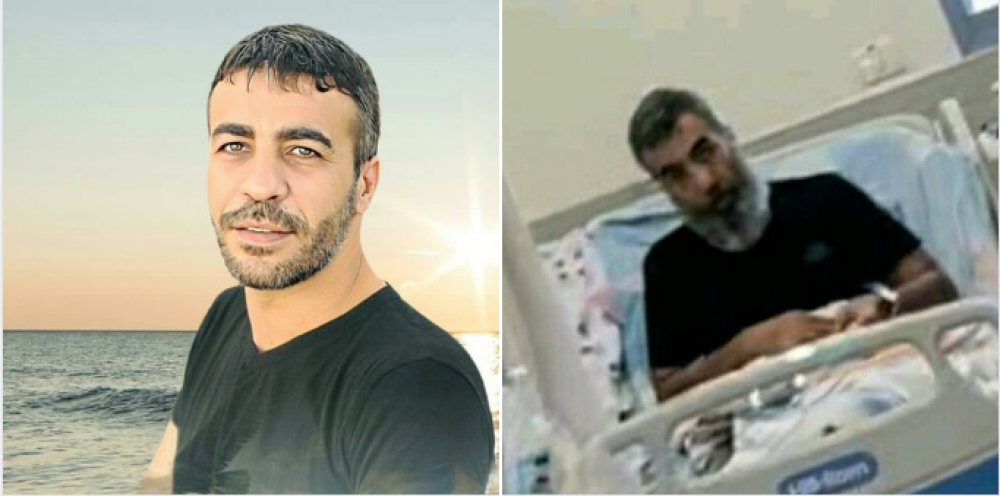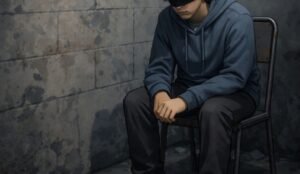Nablus – Media Office:
The policy of medical neglect pursued by the Israeli occupation authorities against Palestinian prisoners and detainees is considered one of the most dangerous systematic violations directly threatening their lives. Despite repeated human rights appeals, the Israeli Prison Service continues to shirk its legal and humanitarian responsibilities, turning prisons into a fertile ground for the spread of diseases and the deterioration of prisoners’ health conditions.
Being driven toward death:
The martyred prisoner Walid Daqqa suffered from myelofibrosis (a rare form of bone marrow cancer). Part of his right lung was removed, and he required intensive medical care. However, the prison administration continued to delay providing the necessary treatment until he died.
Likewise, prisoner Samer Houji also suffers from a cancerous tumor in his back and is facing deliberate medical neglect, with the prison authorities refusing to provide proper treatment.
Prisoner Saleh Hassouna was shot by occupation forces in both legs and is being held in a wheelchair without receiving any physical therapy sessions or surgical intervention for months.
Features of medical neglect:
The Israeli prison administration deliberately delays or ignores the diagnosis of serious illnesses, leading to a worsening of detainees’ health. They settle for offering only painkillers instead of effective treatment, turning otherwise treatable conditions into chronic illnesses and eventual death. Prisons also lack specialized doctors and essential medical equipment, depriving prisoners of appropriate healthcare—an outcome of placing them in an unhealthy environment.
Common diseases:
The most common illnesses in Israeli occupation prisons include:
- Chronic diseases such as diabetes, high blood pressure, and heart conditions.
- Various types of cancer.
- Skin and respiratory diseases due to poor environmental conditions inside the prisons.
- Psychological disorders caused by solitary confinement and continuous psychological torture.
Neglected procedures:
Among the key procedures that the occupation authorities are supposed to follow but deliberately neglect:
- Failure to conduct regular medical check-ups.
- Failure to provide appropriate treatments.
- Failure to transfer sick prisoners to specialized hospitals.
- Failure to ensure a healthy environment inside the prisons.
Martyrs of medical neglect:
The year 2025 has witnessed an increase in the pace of systematic medical neglect in Israeli prisons, leading to the death of several Palestinian prisoners. Among them was prisoner Moataz Mahmoud Abu Zneid (35 years old) from Dura/Hebron, who died due to the deterioration of his health and the prison administration’s refusal to provide necessary treatment. He was transferred late to “Soroka” Hospital after falling into a coma and was pronounced dead on January 12, 2025.
Prisoner Walid Daqqa (62 years old) also died in April 2024, after a long struggle with cancer. The occupation authorities refused to release him despite the severe deterioration of his condition, which led to his death inside Assaf Harofeh Hospital.
The policy of medical neglect includes denying prisoners access to basic healthcare, delaying transfers to hospitals, and refusing to provide necessary medication. This leads to worsening health conditions and, in some cases, death.
These cases highlight the urgent need for the international community and human rights organizations to pressure the occupation authorities to comply with international laws related to prisoners’ rights, to provide the required medical care, and to hold those responsible for these grave violations accountable.
Violations of international law:
The Israeli occupation authorities violate several international laws and conventions, including:
- The Fourth Geneva Convention, which stipulates the provision of medical care to prisoners.
- The Universal Declaration of Human Rights, which affirms every person’s right to access healthcare.
What is required legally and in terms of rights:
On the local level, it is necessary to form independent investigative committees to monitor and document cases of medical neglect, and to provide legal support to sick prisoners and their families.
On the international level, international organizations must be called upon to pressure the occupation to comply with international laws, to file complaints with the International Criminal Court regarding the crimes of medical neglect, and to organize international campaigns in solidarity with sick prisoners and demand their release.
Slow death:
The deliberate policy of medical neglect in Israeli occupation prisons constitutes a systematic crime aimed at breaking the will of Palestinian prisoners and slowly killing them. Confronting this crime requires urgent and effective action from all legal and human rights entities, both locally and internationally, to ensure the protection of prisoners and to hold those responsible for these serious violations accountable.





